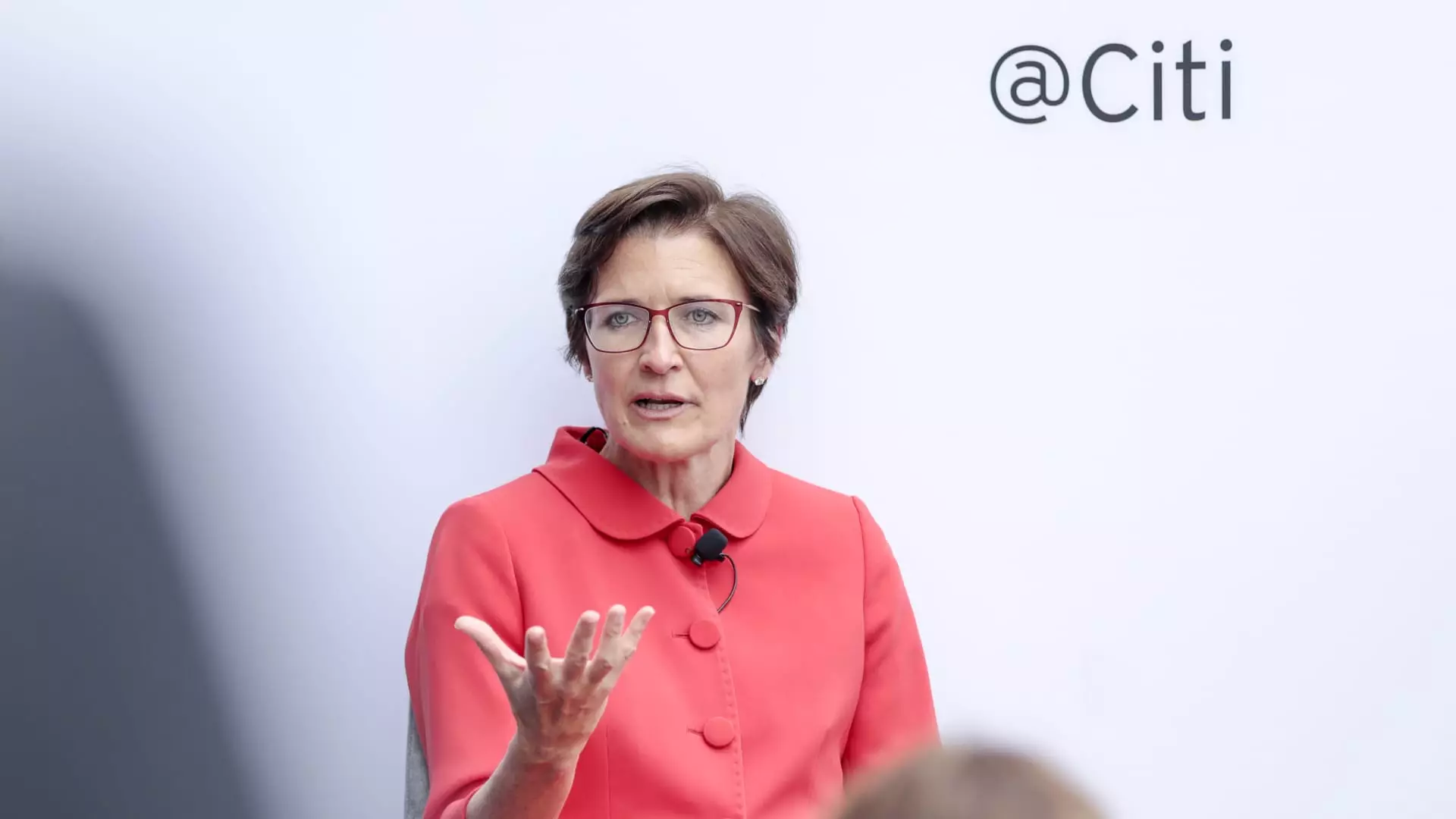Citigroup’s recent fourth-quarter earnings report showcased a resilient financial performance that exceeded analysts’ expectations, marking a significant rebound from previous losses. The bank posted earnings of $1.34 per share against a consensus estimate of $1.22, alongside revenue of $19.58 billion, surpassing the predicted $19.49 billion. This impressive performance not only highlighted the bank’s operational prowess but also boosted investor confidence, as evidenced by a more than 2% jump in premarket trading following the announcement.
The reported net income of $2.86 billion represents a remarkable turnaround, considering that the same quarter the previous year reflected a net loss of $1.84 billion. Such a dramatic shift underscores the effectiveness of Citi’s ongoing strategic adjustments amidst a volatile banking environment. Nevertheless, analysts should note that the year-over-year comparisons could be skewed by specific charges that the bank recorded towards the end of 2023, necessitating a cautious interpretation of these figures.
Citi indicated robust growth across various business sectors, with investment banking standing out as a particularly bright spot. Revenue from this segment experienced a striking 35% year-over-year increase, contributing significantly to the overall banking revenue, which rose by 12%. Even more impressive was a 27% growth rate when factoring in loan hedging impacts. The performance in the markets sector also merited attention; markets revenue soared by 36% year-over-year, buoyed by strong showings in both fixed income and equity businesses.
The fixed income markets revenue, at $3.48 billion, notably surpassed analyst expectations of $2.95 billion. Citi attributed this success in part to sustained demand in the issuance of investment-grade corporate debt, reflecting broader market trends that favor stability and credit quality in uncertain economic times. Furthermore, revenues from both the wealth and services units increased significantly, at 20% and 15% respectively, signaling diverse sources of income generation that bolster Citi’s financial foundation.
CEO Jane Fraser, in a press release following the earnings report, expressed a sense of achievement and optimism, indicating that the results were indicative of a successful strategic plan. With net income up nearly 40% to $12.7 billion for the year, and the bank meeting its full-year revenue target, the foundation appears solid for future growth. However, as Fraser leads the restructuring process initiated after her takeover in March 2021, scrutiny will likely fall on the ongoing transformation efforts. The focus on shedding underperforming international units aligns with a broader industry trend towards operational efficiency and risk management.
Citi’s stock performance further reflects investor sentiment, climbing nearly 37% in 2024 alone, with shares rising more than 4% since the beginning of the year. Investors will keenly anticipate updates on the bank’s strategic initiatives during the analyst call, eager to understand how Fraser’s leadership will continue to shape the institution’s outlook in a post-pandemic financial landscape.
Citigroup’s latest financial results reveal a bank on the mend, adapting to challenges with a diversified investment strategy and effective leadership. As it positions itself for sustainable growth, the coming year may well determine how successfully it can navigate the shifting tides of the global economy.

